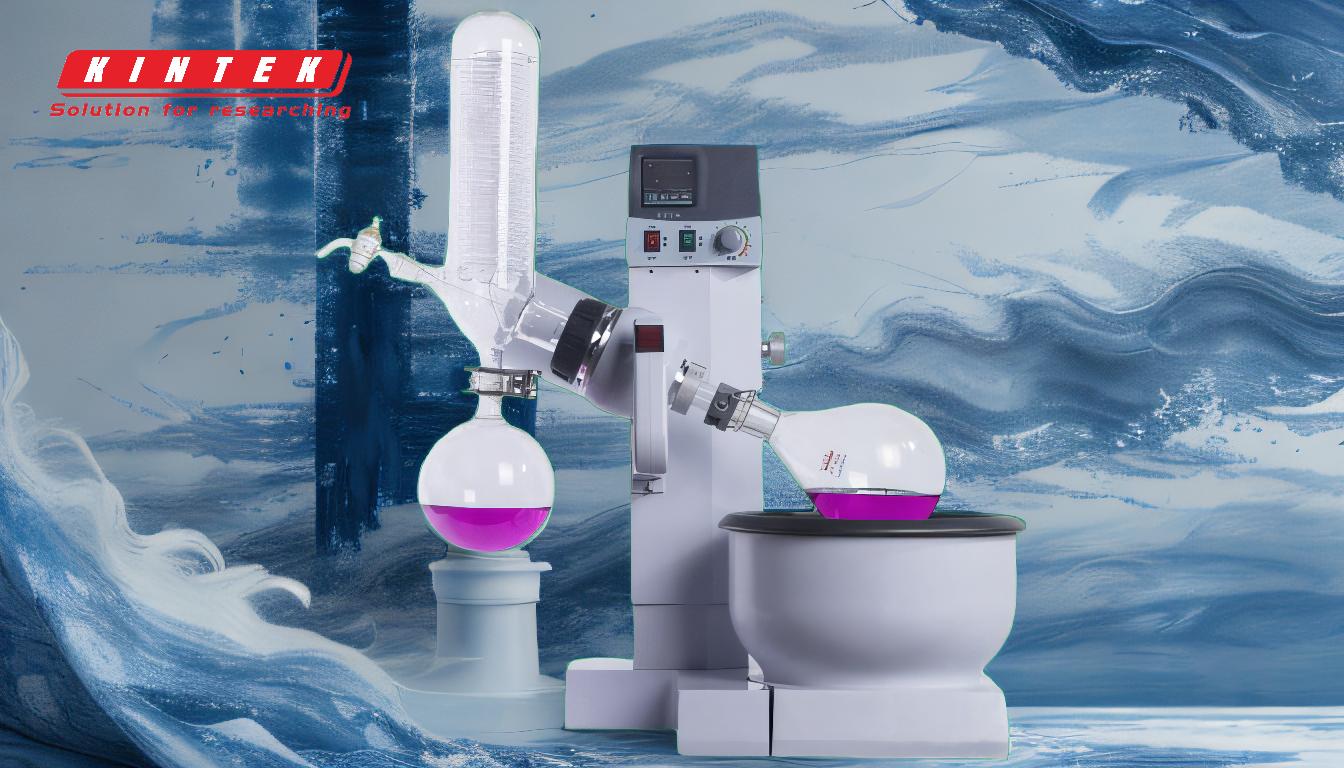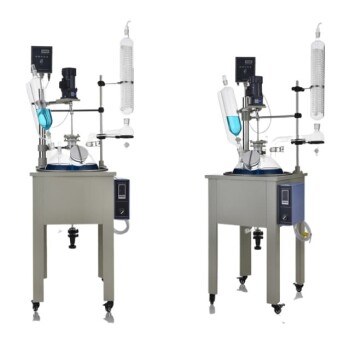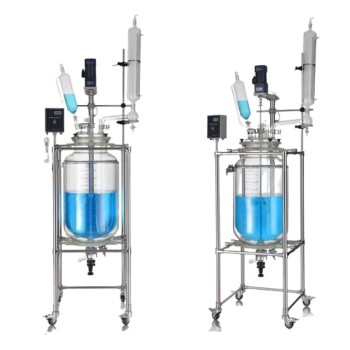Rotary evaporators are widely used in laboratories for solvent removal and concentration of samples, but they come with several limitations. These include the single-sample processing nature, potential sample loss due to bumping, contamination risks, frequent maintenance requirements, and safety concerns. Bumping, a common issue, can be mitigated by adjusting vacuum strength, bath temperature, or using additives like boiling chips. Additionally, rotary evaporators require regular replacement of sealed components and careful handling to avoid contamination and ensure safety. Despite these challenges, understanding and addressing these limitations can optimize their use in laboratory settings.
Key Points Explained:

-
Single-Sample Processing
- Rotary evaporators are designed to handle one sample at a time, which can be inefficient for high-throughput laboratories.
- This limitation contrasts with techniques like short-path distillation, which can process multiple samples simultaneously.
-
Sample Loss Due to Bumping
- Bumping occurs when a sample boils unevenly, leading to sudden eruptions that can cause sample loss.
- This is particularly problematic with mixtures like ethanol and water, which have varying boiling points.
- Mitigation strategies include:
- Creating a homogeneous phase to stabilize boiling.
- Adjusting vacuum strength or bath temperature to control evaporation.
- Using additives like boiling chips to promote uniform nucleation.
- Employing specialized traps or condenser arrays for difficult samples.
-
Risk of Contamination
- Sample materials may be exposed to air during evaporation, leading to contamination and impurities.
- Frequent cleaning of glassware is necessary to maintain material purity.
- Any residual impurities can compromise the quality of the extracted materials.
-
Maintenance and Replacement Costs
- The sealed components of rotary evaporators, such as O-rings and gaskets, have a limited lifespan and require regular replacement.
- This maintenance is both time-consuming and costly.
- Proper upkeep is essential to ensure the system's efficiency and longevity.
-
Safety Concerns
- Rotary evaporators have rotating parts that pose entanglement risks, especially with loose clothing, hair, or jewelry.
- Safety precautions include:
- Avoiding loose attire or accessories while operating the equipment.
- Handling air-reactive materials with care, particularly under vacuum, to prevent violent reactions.
- Proper training and adherence to safety protocols are critical to prevent accidents.
-
Challenges with Aromatics and Taste
- In some cases, the distillation process can alter the balance of aromatics in a sample, resulting in undesirable tastes.
- This occurs because certain aromatic compounds become more concentrated in the distillate, potentially leading to an unpleasant flavor profile.
-
Slow Evaporation Rates
- Rotary evaporators may exhibit slow evaporation rates for certain samples, particularly those with high boiling points or complex compositions.
- Optimizing parameters like vacuum strength, bath temperature, and rotation speed can help improve efficiency.
-
Limited Lifespan of Components
- The glassware and sealed components of rotary evaporators are prone to wear and tear, requiring frequent replacement.
- This not only increases operational costs but also necessitates downtime for maintenance.
By addressing these limitations through proper techniques, maintenance, and safety measures, laboratories can maximize the efficiency and effectiveness of rotary evaporators while minimizing potential drawbacks.
Summary Table:
| Limitation | Description | Mitigation Strategies |
|---|---|---|
| Single-Sample Processing | Handles one sample at a time, inefficient for high-throughput labs. | Use alternative techniques like short-path distillation for multi-sample processing. |
| Sample Loss Due to Bumping | Uneven boiling causes sample eruptions and loss. | Adjust vacuum strength, bath temperature, or use boiling chips for uniform nucleation. |
| Risk of Contamination | Exposure to air during evaporation can lead to impurities. | Frequent cleaning of glassware and careful handling to maintain purity. |
| Maintenance and Replacement | Sealed components require regular replacement, increasing costs and downtime. | Regular upkeep and timely replacement of O-rings, gaskets, and glassware. |
| Safety Concerns | Rotating parts pose entanglement risks; air-reactive materials can be hazardous. | Avoid loose attire, handle materials carefully, and follow safety protocols. |
| Challenges with Aromatics | Distillation can alter aromatic balance, leading to undesirable tastes. | Optimize distillation parameters to preserve sample integrity. |
| Slow Evaporation Rates | High boiling point or complex samples evaporate slowly. | Adjust vacuum, temperature, and rotation speed for improved efficiency. |
| Limited Lifespan of Components | Glassware and seals wear out, requiring frequent replacement. | Regular maintenance and replacement to ensure system longevity. |
Need help optimizing your rotary evaporator setup? Contact our experts today for tailored solutions!










